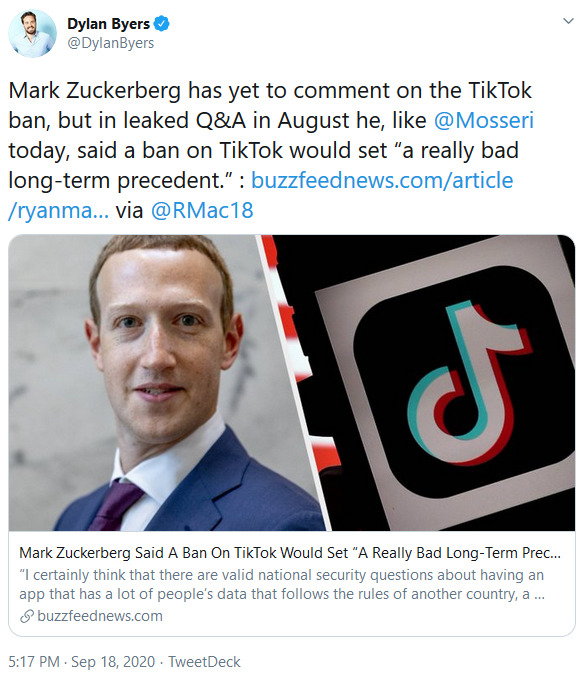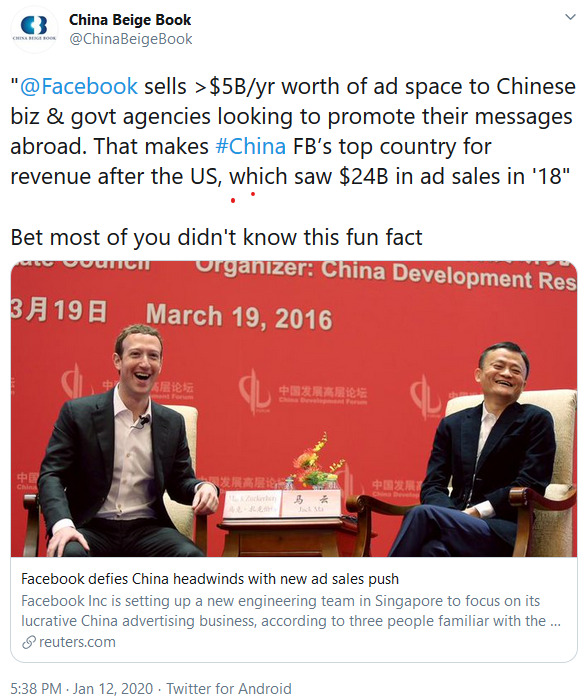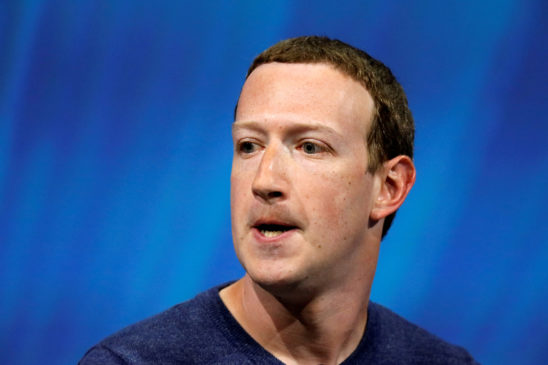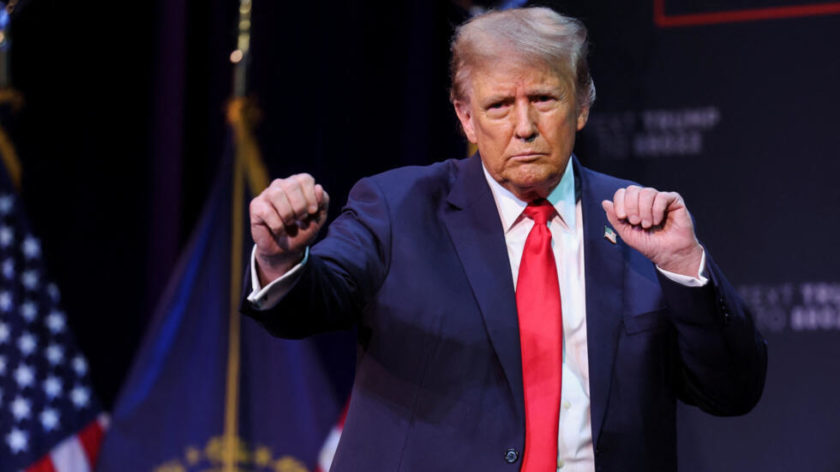- TikTok’s overwhelming popularity gained in a short time has no doubt caused a scare at Facebook.
- Banning the short-form video app would do more harm than good to the social media giant.
- U.S. tech giants with an international presence would likely be hurt too by such a ban.
Chinese short-form video app TikTok has been a runaway success across much of the world.
On the face of it, the move by the federal government to bar people from downloading the TikTok app in the U.S. starting Sunday might seem like a plus for Facebook. This is especially so because it eliminates competition for the social media giant in one of its most lucrative markets based on the average revenue per user.
But a deeper look shows that the move has more downsides than upsides for Facebook.
Here is why:
1. Makes the antitrust case against Facebook stronger
Antitrust investigations have already been launched against Facebook. Among other things, the social media giant has been accused of stifling or acquiring upcoming rivals in the social media space.
Two months ago, for instance, Facebook was accused of making anti-competitive acquisitions during a House Antitrust Subcommittee hearing.
Among the evidence presented included documents showing that Facebook acquired Instagram to avert potentially threatening competition. Facebook CEO Mark Zuckerberg was even cited in an email as having indicated willingness to buy any upcoming rival to achieve enduring dominance in the space.
Other anti-competitive tactics that Facebook has been accused of using included copying popular features.
With TikTok’s overwhelming popularity, Facebook for once looked vulnerable. This could have helped the Zuckerberg-led tech giant make the case that it is not a monopoly and that there is room for upstarts to break in and thrive.
Now, with the ban on the Chinese short-form video app, Facebook can’t convincingly make that argument.
2. TikTok Ban sets a bad precedent in other countries
The U.S. has long been viewed as the leader of the free world. The ban on TikTok now sets a negative example for the rest of the world, especially among the totalitarian states. Not only does the move encourage the suppression of free speech but potentially exposes Facebook and other U.S. tech firms that collect user data to similar treatment abroad.
For instance, other countries could ban apps such as Facebook based on national security and other concerns, real or imagined.
In the case of Facebook, this would be a big blow considering that the majority of the users of its family of apps are outside the U.S.

Additionally, the move would encourage the balkanization of the internet. And the ban is tacit approval of how China approaches internet governance. If this were to be adopted across the globe, it would be catastrophic for Facebook and other U.S. tech giants.
3. China could retaliate against Facebook’s ad business in the country
It is a well-known fact that Facebook has been banned in China for over a decade now. What is not so well-known, though, is the fact that Facebook still generates significant revenue from the world’s second-largest economy.
On average, Facebook’s annual revenues in China exceed $5 billion making it the most lucrative market for the social media giant after the United States. Most of this revenue comes from ads sold to Chinese businesses and government agencies eyeing audiences abroad.

If China seeks to retaliate against the U.S. over the TikTok ban, the world’s second-largest economy still has an avenue to hurt Facebook.




